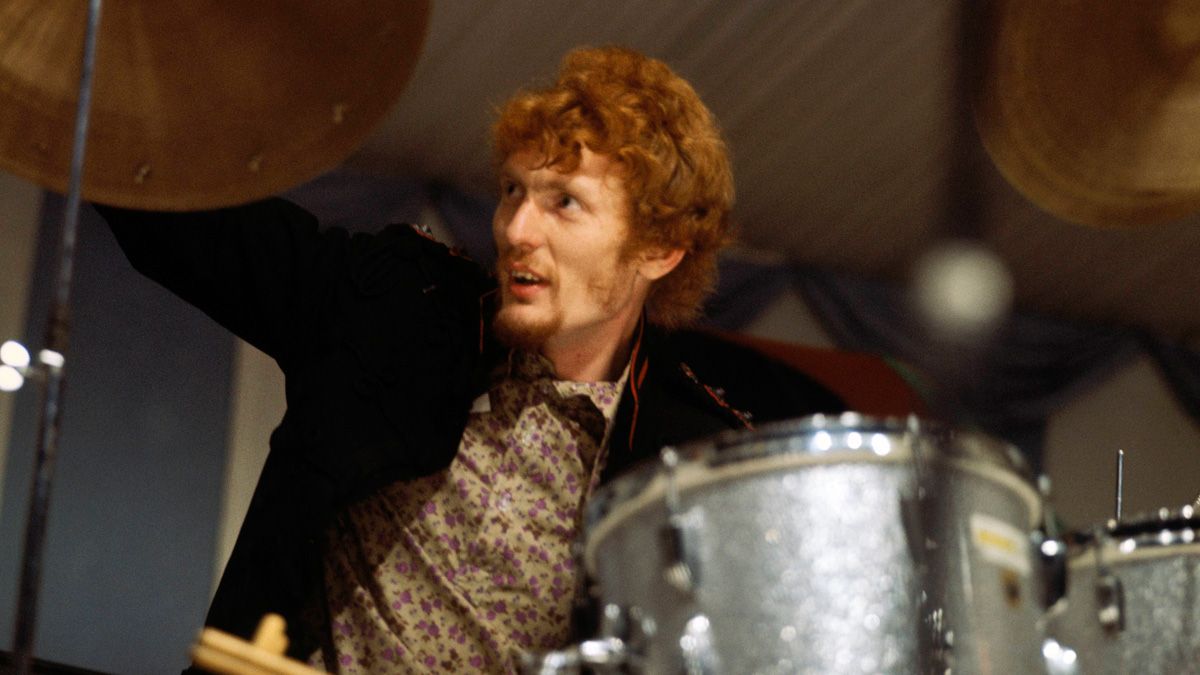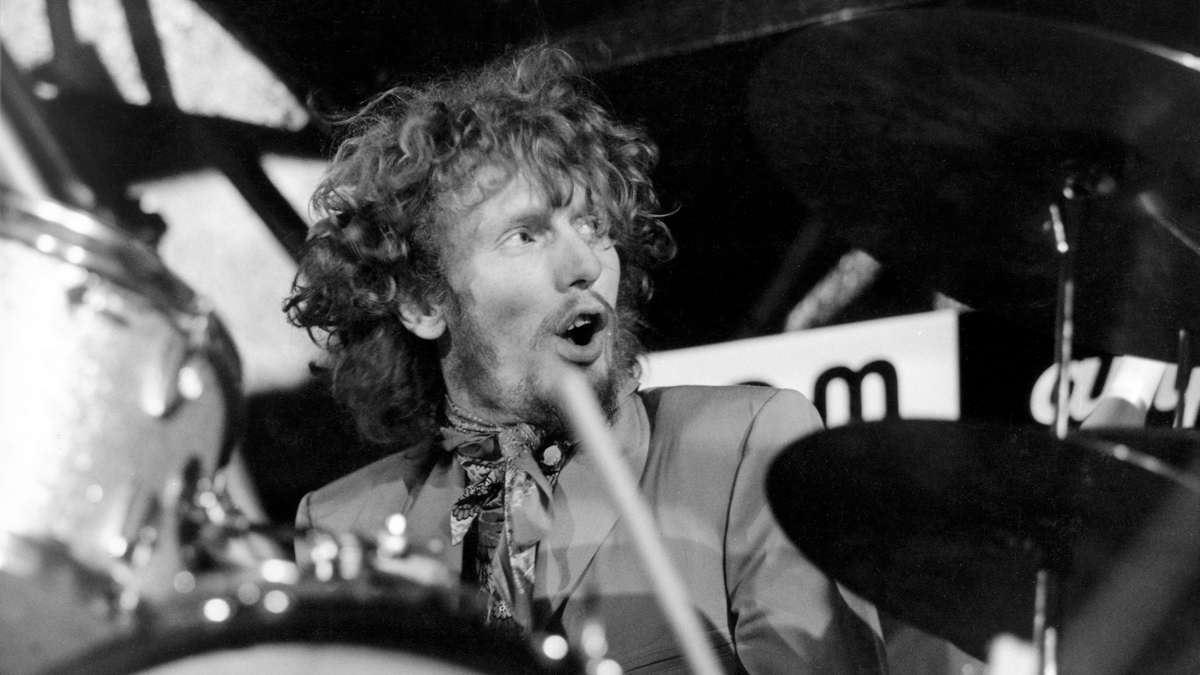Ginger Baker, Cream’s legendary drummer, dies aged 80
Baker will be remembered as one of the most-talented drummers the world has seen

The Cream drummer and co-founder Ginger Baker has died, aged 80. His death was confirmed on his Facebook page in a statement that said he “passed away peacefully” on Sunday morning.

Baker had been in critically ill in hospital, and has had a series of health problems over the past few years, causing him to retire from the drum stool. Baker suffered from chronic obstructive pulmonary disease, from years of smoking, and had osteoarthritis. In July 2016 he underwent open heart surgery. He also took a bad fall.
Baker was irascible, brilliant, a visionary. He took a jazz style and took it into rock, and his dynamic playing formed the backbone of one of the most-celebrated rock acts of the late 1960s.
Born Peter Edward Baker – and how uncanny that a man prone to eruptions should share a name with one of the world's preeminent volcanologists – he started playing the drums in his teens and took lessons from the great Phil Seamen.
Baker was fire made flesh
This grounding in the fundamentals of jazz drumming stood him in good stead and his first serious project came soon after, when he played alongside future Cream bandmate bassist/vocalist Jack Bruce in the Graham Bond Organisation. With Eric Clapton, the pair founded Cream in 1966.
If Baker and Bruce enjoyed a combustible relationship that ended the band within a couple of years, the tension certainly added a frisson of urgency to Cream’s arrangements. Baker’s drumming then made him a star. His use of two kick drums prefigured the double-kick drum approach ubiquitous in heavy metal, which may have horrified him.
Many things horrified him. Other people, mainly. Baker was fire made flesh. It’s part of his legend. The 2012 documentary, Beware Of Mr Baker, directed by Jay Bulger, saw Bulger live with Baker on his South African ranch while working on the famous Rolling Stone article The Devil And Ginger Baker, took its title from the sign outside Baker’s property. The documentary also gave the uninitiated an idea of Baker’s importance to rock music.
Get the MusicRadar Newsletter
Want all the hottest music and gear news, reviews, deals, features and more, direct to your inbox? Sign up here.
When Cream split in 1968, Baker and Clapton formed Blind Faith with Steve Winwood of Traffic on keyboards and vocals and Ric Grech from Family on bass, recording one album, playing a legendary debut show in front of 100,000 people in Hyde Park, London.
Baker further explored the nexus of jazz and rock with Ginger Baker’s Air Force. In 1971 he set up a studio in Lagos, Nigeria. He travelled across Africa, was the subject of filmmaker Tony Palmer’s documentary Ginger Baker In Africa, and amassed a knowledge of African rhythms.
He worked with an extraordinary array of musicians and worked in many different styles. Here was the man who played RnB with the Graham Bond Organisation and defined hard rock with Cream, and he played with Fela Kuti, Public Image Ltd, and Hawkwind.
Projects were often short-lived. Like BBM, a power-trio that saw a Baker and Bruce reunited in the company of Gary Moore for the 1994 blues-rock album Around The Next Dream.
Baker and Cream did play together again. In 2005, they performed a series of dates at New York’s Madison Square Garden and London’s Albert Hall. In the later years of his career, Baker played with Ginger Baker Jazz Confusion, playing as recently as 2015.
Jonathan Horsley has been writing about guitars and guitar culture since 2005, playing them since 1990, and regularly contributes to MusicRadar, Total Guitar and Guitar World. He uses Jazz III nylon picks, 10s during the week, 9s at the weekend, and shamefully still struggles with rhythm figure one of Van Halen’s Panama.
“Tonight is for Clem and it’s for friendship. An amazing man and a friend of the lads”: Sex Pistols dedicate Sydney show to Clem Burke
“Almost a lifetime ago, a few Burnage lads got together and created something special. Something that time can’t out date”: Original Oasis drummer Tony McCarroll pens a wistful message out to his old bandmates










